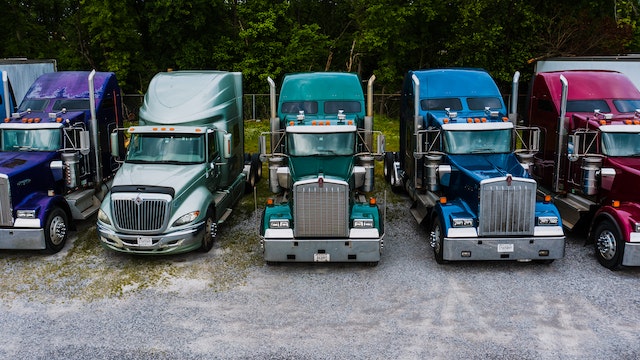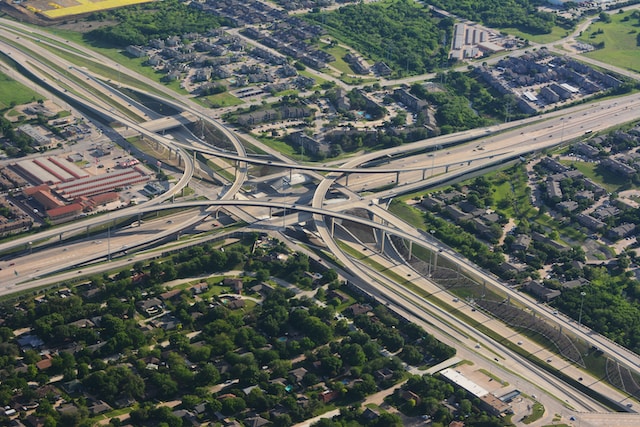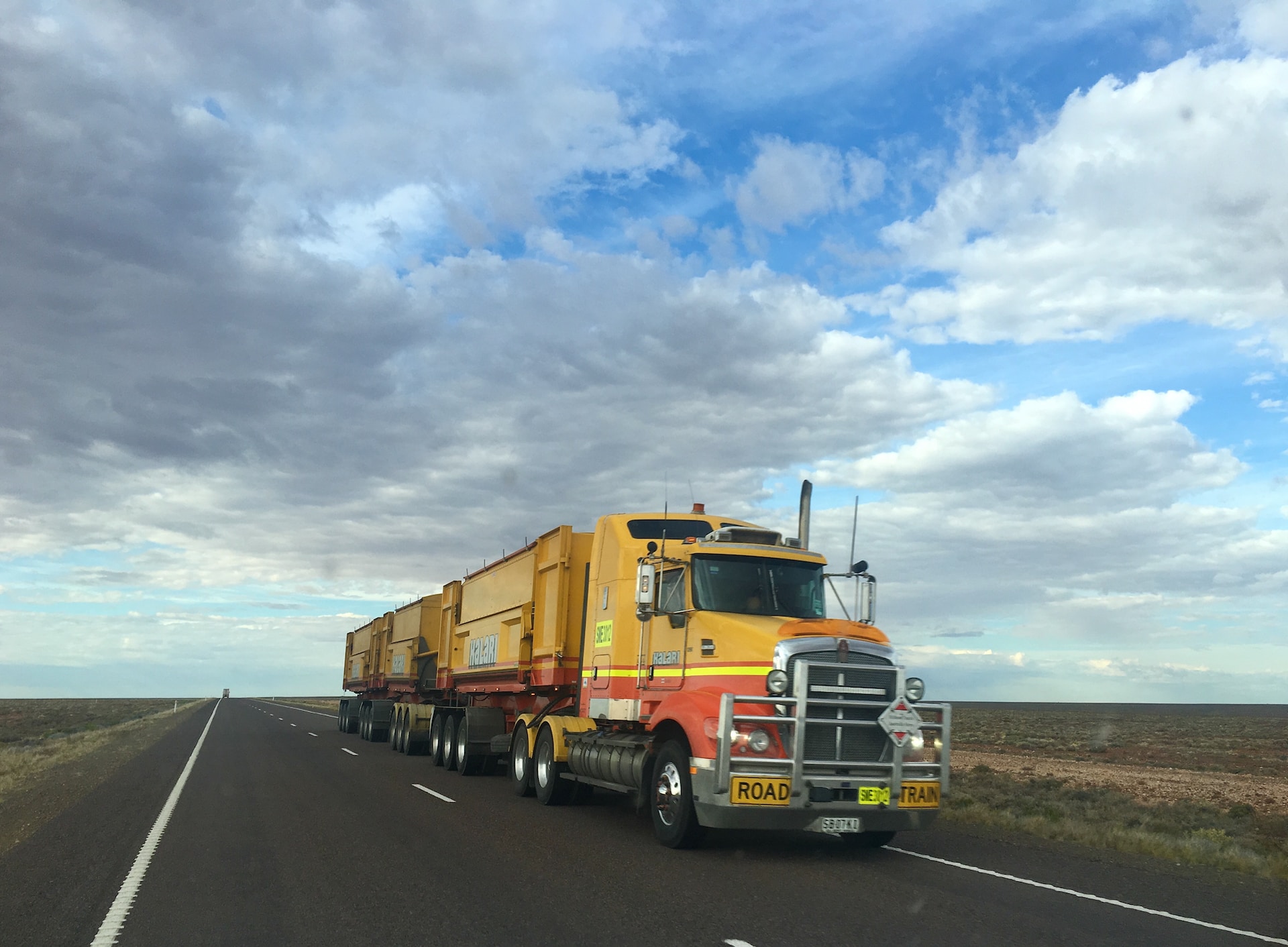Blockchain technology has been transforming various industries for years, and it's now expanding beyond finance and supply chains to other sectors.
The world of transportation and logistics is experiencing a groundbreaking advancement due to the emergence of blockchain technology.
With its decentralized and immutable nature, blockchain is revolutionizing how trucking businesses operate, enabling greater transparency, security, and efficiency throughout the supply chain.
Blockchain isn't just a passing trend; it offers real benefits that more businesses recognize.
In the transportation industry, blockchain ensures smooth operations in many sectors. It has already brought numerous benefits, but more are still to come.
What is blockchain?
Before we go into the specific applications of blockchain in the trucking industry, let's first understand what blockchain is.
At its core, blockchain is a decentralized, distributed ledger technology that enables secure and transparent transactions.
Unlike traditional centralized systems, blockchain operates on a network of computers, known as nodes, where multiple participants, known as validators verify each transaction.
These verified transactions are then grouped together in blocks, which are linked to form a chain of blocks, hence the name blockchain.
The unique characteristics of blockchain, including immutability, transparency, and security, make it an ideal solution for industries seeking to enhance trust, efficiency, and data integrity.
What is the role of blockchain in transportation?
Artificial intelligence in trucking is already booming, and blockchain technology is also making its way to revolutionize the way information is recorded, stored, and shared across the supply chain.
Using blockchain technology, trucking businesses can streamline operations, increase visibility, reduce fraud, and enable seamless stakeholder collaboration.
From shipment tracking to smart contracts and digital documentation, blockchain has the potential to transform the entire transportation ecosystem, creating a more efficient, secure, and customer-centric industry.
10 Ways Blockchain is Transforming the Trucking Industry

- Enhanced supply chain visibility
Blockchain technology provides enhanced visibility into the supply chain for trucking businesses.
Through its distributed ledger, companies can gain real-time insights into the movement of goods, enabling better inventory management, reduced delays, and improved customer satisfaction.
For example, a trucking company using blockchain can track a shipment from the point of origin to its final destination, monitoring each journey step and ensuring transparency for all stakeholders involved.
- Improved transparency and trust
One of the key advantages of blockchain is its ability to provide transparency and foster trust in the trucking industry.
By eliminating the need for intermediaries, blockchain creates a transparent and immutable record of transactions. This record is accessible to all participants in the network, reducing the risk of fraud or manipulation.
A trucking company can use this by securely sharing shipment details, such as pickup and delivery times, with their customers, creating a transparent and trusted relationship.
- Streamlined documentation processes
Traditional paper-based documentation processes in the trucking industry can be time-consuming and prone to errors. Blockchain technology offers a solution by enabling digital documentation and the use of smart contracts.
Digital documentation eliminates the need for physical paperwork, reducing administrative burdens and minimizing the risk of misplaced or damaged documents. Smart contracts, on the other hand, automate and streamline various processes, such as contract execution and payment settlements. This automation improves efficiency, reduces delays, and ensures accurate record-keeping.
For example, a trucking company can use blockchain-based smart contracts to automatically generate invoices and trigger payments once specific conditions are met, eliminating manual paperwork and accelerating payment processes.
- Efficient freight tracking
Blockchain provides end-to-end tracking capabilities for freight shipments, ensuring that all stakeholders have access to accurate and up-to-date information.
By leveraging blockchain technology, trucking companies can monitor the location, condition, and status of goods throughout the supply chain. This real-time visibility enables proactive decision-making, reduces the risk of lost or stolen shipments, and enhances overall operational efficiency.
For example, a trucking company can use blockchain to track temperature-sensitive goods, ensuring that they are stored and transported under the required conditions and immediately detecting any deviations that could compromise product quality.
- Secure and efficient payments
Blockchain-based payment systems offer secure and efficient payment solutions for the trucking industry. Using blockchain technology, transactions can be executed directly between parties without intermediaries, such as banks or payment processors. This eliminates the delays and fees associated with traditional payment methods, streamlining financial processes for trucking businesses.
For example, a trucking company can instantly use blockchain-based digital currencies to settle payments with its suppliers or subcontractors, avoiding the complexities and costs of traditional banking transactions.
- Fraud prevention and supply chain security
Blockchain's transparency and immutability make it an effective tool for preventing and detecting fraudulent activities in the trucking industry.
The decentralized nature of blockchain ensures that records cannot be altered or tampered with, providing a secure and auditable trail of transactions. This helps to maintain the integrity of the supply chain and enhances security.
For example, a trucking company can use blockchain to verify the authenticity of goods, ensuring they are not counterfeit or subject to tampering during transit.
- Efficient vehicle maintenance and servicing
Blockchain technology can streamline vehicle maintenance and servicing processes for trucking companies. By utilizing blockchain, companies can securely track and record the maintenance history of their vehicles. This includes details such as maintenance schedules, repairs, and part replacements. A transparent and immutable vehicle maintenance record enables proactive planning, reduces downtime, and improves overall fleet management.
For example, a trucking company can use blockchain to ensure that their vehicles receive timely maintenance and servicing, extending their lifespan and minimizing unexpected breakdowns on the road.
- Optimized route planning and fuel efficiency
Blockchain-powered platforms can help with historical data and real-time information to optimize route planning for trucking companies.
By analyzing traffic patterns, weather conditions, and other relevant factors, blockchain-based systems can recommend the most efficient routes, reducing empty miles and minimizing fuel consumption. This helps to improve fuel efficiency and reduce carbon emissions, and saves costs for trucking businesses.
For instance, a trucking company can use a blockchain-based platform that utilizes AI algorithms to optimize route planning, considering factors such as fuel efficiency, delivery deadlines, and traffic conditions, ultimately resulting in significant savings.
- Seamless collaboration and trust in freight forwarding
Blockchain technology facilitates seamless collaboration and trust among freight forwarders, carriers, shippers, and other stakeholders in the trucking industry. Using blockchain's decentralized and transparent nature, participants in the network can share information, track shipments, and manage logistics operations more efficiently. This enhanced collaboration leads to improved coordination, reduced communication gaps, and increased reliability in freight forwarding services.
For example, multiple trucking companies and freight forwarders can join a blockchain-based platform to share real-time shipment updates, communicate effectively, and make informed decisions based on accurate and trustworthy data.
- The emergence of new business models
Blockchain technology opens up possibilities for new business models in the trucking industry. The decentralized and transparent nature of blockchain allows for creation of innovative solutions that disrupt traditional business practices.
For instance, decentralized marketplaces built on blockchain enable direct connections between shippers and carriers, eliminating the need for intermediaries and reducing costs. Peer-to-peer logistics networks powered by blockchain enable more efficient and direct participant collaboration, streamlining the logistics process.
The Future is Here

As blockchain technology continues to mature and gain widespread adoption, the potential for its impact on the trucking industry is vast.
With advancements in interoperability, scalability, and regulatory frameworks, blockchain has the potential to transform the trucking ecosystem into a more efficient, secure, and collaborative environment.
However, challenges such as standardization, data privacy, and regulatory considerations must be addressed to unlock the potential of blockchain in the industry fully. As trucking businesses embrace blockchain and explore its various applications, they position themselves at the forefront of innovation, ready to embrace the future of logistics.
By embracing blockchain and its potential applications, trucking businesses can position themselves as industry leaders, driving innovation and reaping the benefits of a decentralized and trust-based ecosystem. The trucking industry's future lies in harnessing the power of blockchain and leveraging its capabilities to create a more efficient and sustainable transportation landscape.






